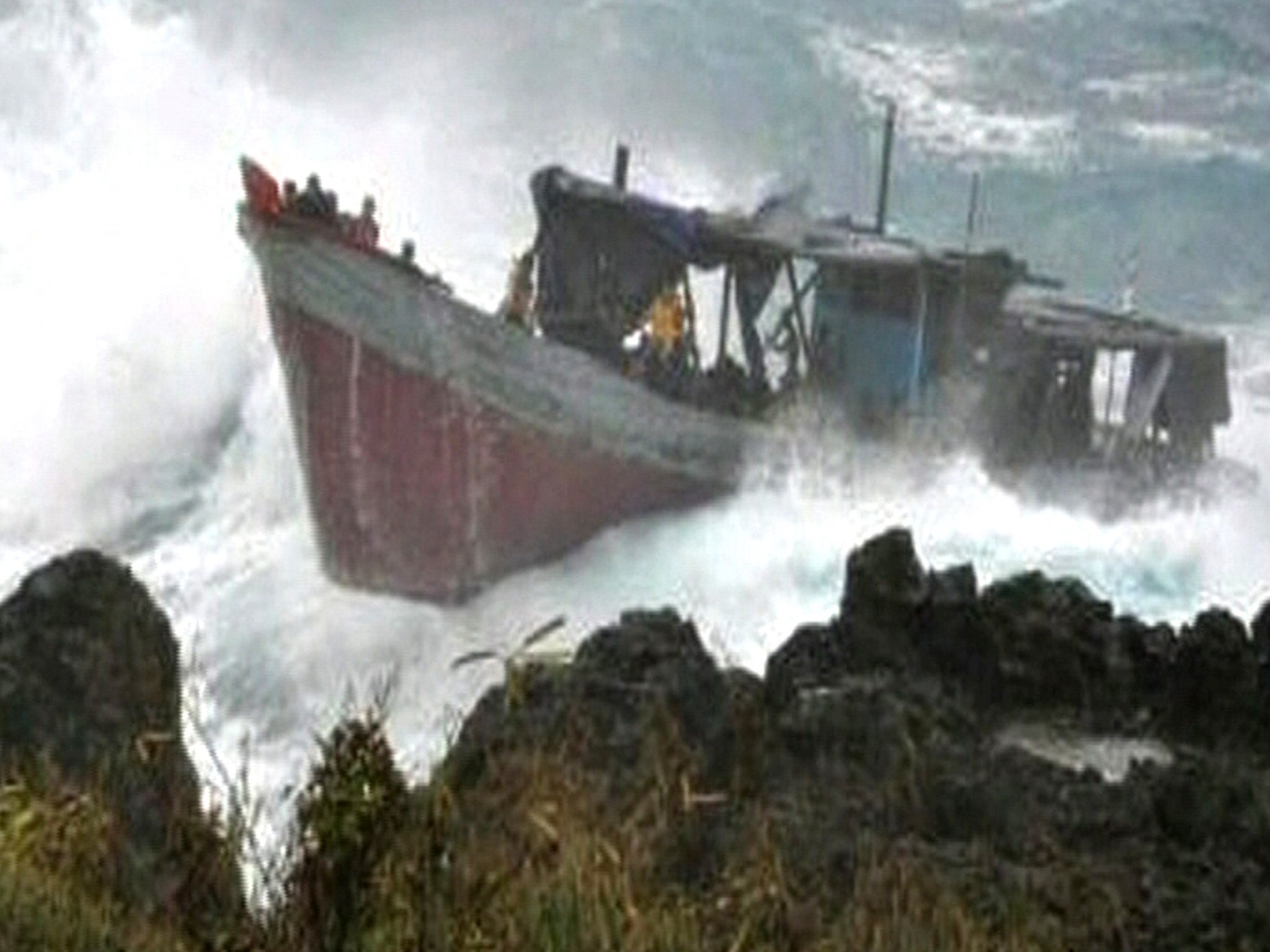Australia blamed for deaths of 50 refugees whose boat was smashed to pieces on Christmas Island in 2010
Victims’ relatives sue authorities, claiming tragedy could have been prevented

It was a tragedy that shocked Australia and traumatised the small Indian Ocean community of Christmas Island: a flimsy wooden boat carrying 89 asylum-seekers dashed to pieces against cliffs in a vicious storm.
Fifty men, women and children, mainly from Iran and Iraq, died that dreadful morning in December 2010 – and now some of their relatives, along with survivors who were injured, are suing the Australian government, claiming it could have done more to help.
Locals on Christmas Island – an Australian territory where asylum-seeker boats sailing from Indonesia often make first landfall – did their utmost, hurling lifejackets into the raging seas. But for the most part they could only watch helplessly from the clifftop as the boat crashed repeatedly against the jagged rocks and disintegrated.
Rescue vessels on the island were unseaworthy at the time, according to George Newhouse, the lawyer fighting the case for the families. Mr Newhouse – who represented survivors at the inquest in 2012, where he argued that government policies were putting lives at risk – contends that Australian authorities failed in their duty of care.
News of the lawsuit outraged the government, with immigration minister Scott Morrison calling it “shameful and offensive”. Praising the efforts of navy and customs personnel who, along with Christmas Islanders, helped to save lives, he said: “This is like someone who was saved from a fire suing the fireman.
“It’s like someone who was held hostage being saved by police – and suing the police.”
Usually, Australian navy patrol vessels intercept asylum-seeker boats at sea and escort them to Christmas Island. But amid the violent monsoon storm that boat – known as SIEV 221 – escaped detention, and the alarm was raised only when locals spotted the shipwreck taking place just off their shores.
Despite intensive searches over the following days, only 30 bodies were recovered. The bereaved included Madian El Ibrahimy, an Iraqi who lost his wife and two children, aged four and eight months. He had taken the same route to Australia six months earlier and was in the Christmas Island detention centre when his family perished.
“They came so close but they never made it.” Mr Ibrahimy told The Independent at the time. His two half-brothers, both teenagers, survived, as did their cousin.
Mr Newhouse, who is acting on behalf of eight families, claims that – since the boat was in its territorial waters – Australia was responsible for the welfare of those on board. The authorities knew, or should have known, that the boat was en route, he will argue, and should have been looking out for it.
At the inquest, the coroner, Alistair Hope, blamed the “people-smugglers” who arranged the voyage on the rickety wooden boat during the monsoon season. But he also criticised the government for the lack of rescue vessels and urged that measures be taken to improve surveillance in the waters around the island.
Mr Newhouse believes at least some lives could have been saved. “The Commonwealth [federal government] knew, or should have known, that there were vulnerable men, women and children that night on the high seas in a storm,” he told Australia’s ABC radio. “[It] took insufficient steps to look out for them.
“And when the vessel was approaching Christmas Island and was visible, they didn’t have proper systems in place for operating lifesaving vessels to actually rescue them.”
As for Mr Morrison’s ambulance analogy, Mr Newhouse said: “This case… [is] about a government failing to provide the paramedic with a working ambulance.”
Subscribe to Independent Premium to bookmark this article
Want to bookmark your favourite articles and stories to read or reference later? Start your Independent Premium subscription today.

Join our commenting forum
Join thought-provoking conversations, follow other Independent readers and see their replies